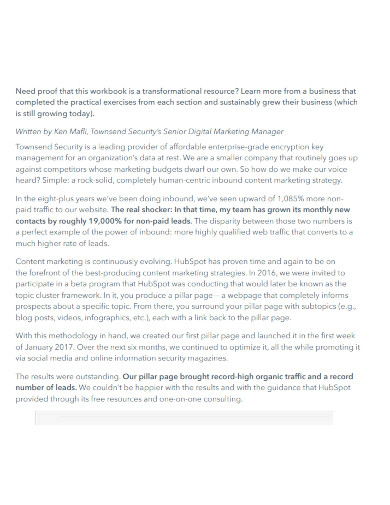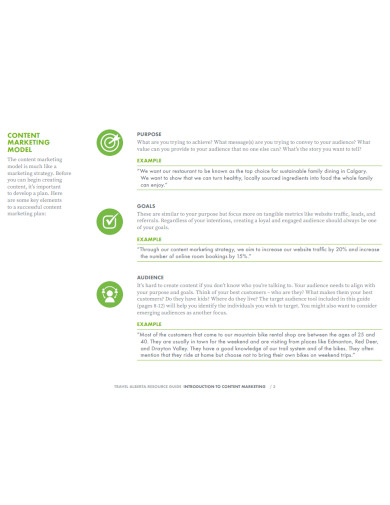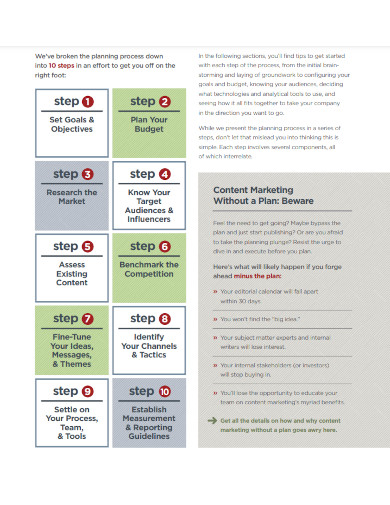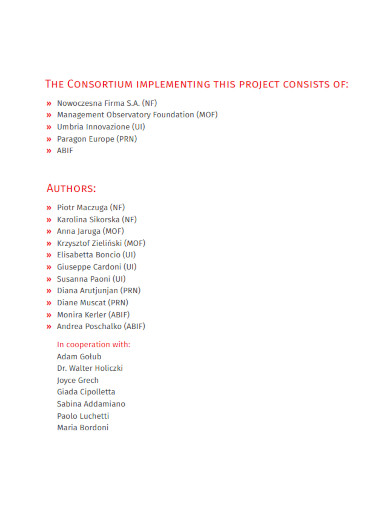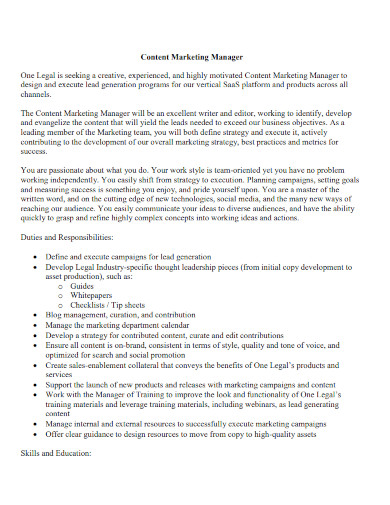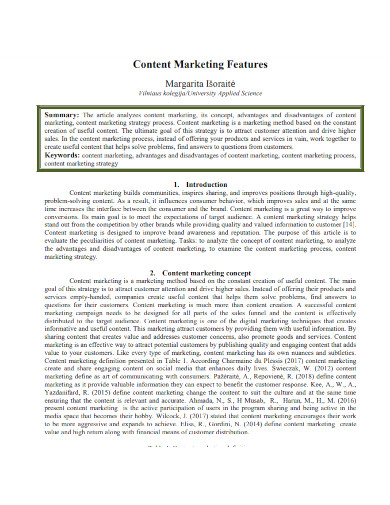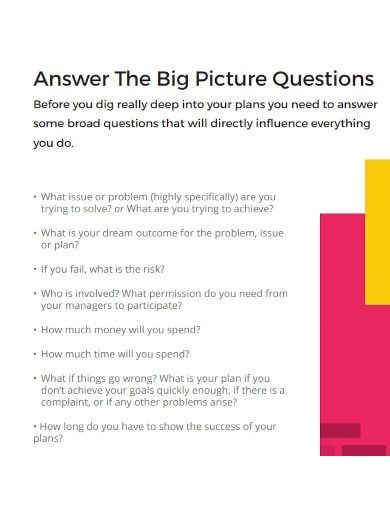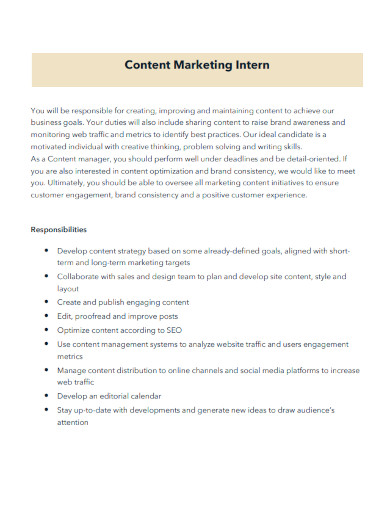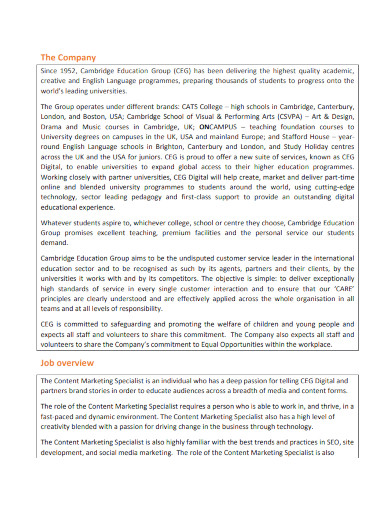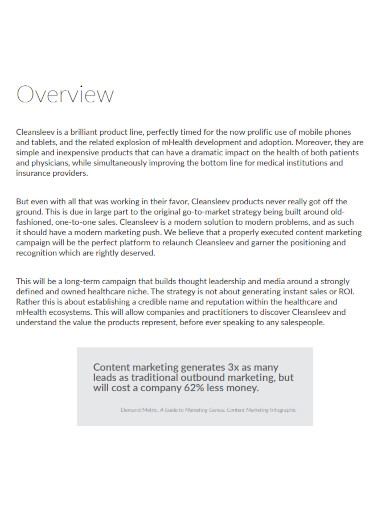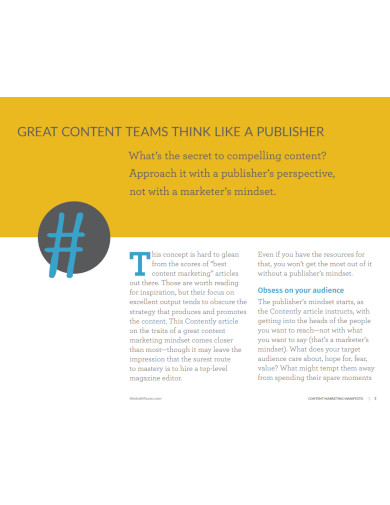16+ Content Marketing Examples to Download
Lately, there has been a lot of buzz about content marketing. More and more companies are using content marketing as a major tool in their marketing efforts and are actively taking a big slice of the marketing budget.
It is not common that a lot of people to think content marketing and advertising are all the same. But contrary to popular belief, content marketing and advertising are two different things. Content on its own is what viewers or an audience really want to read and share while advertising only interrupts the content for the reason of trying to sell a product or introduce a brand. Content marketing is building and attracting an audience or potential customers. It is conversing and understanding the customer and creating content that they are interested in and would want to share with their friends in return.
1. Content Marketing Case Study Template
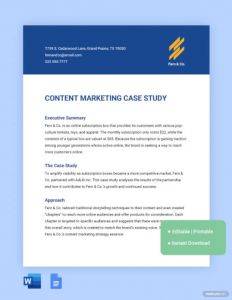
2. Social Media Content Marketing Plan Template
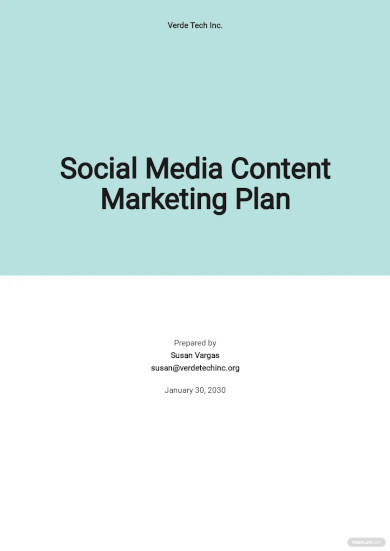
3. Content Marketing Plan Template
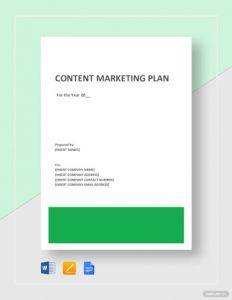
4. Content Marketing Calendar Template
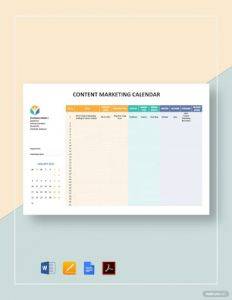
5. 30 Day Content Marketing Plan Template
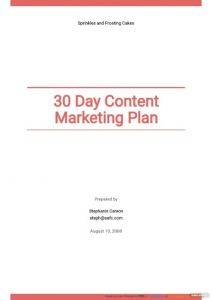
Content Marketing Roadmap Template
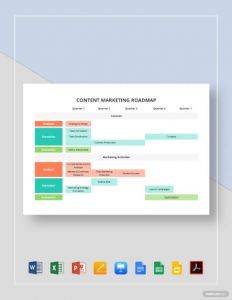
6. Content Marketing Business Plan Template
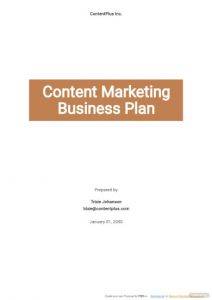

Content Marketing Types
While there exist many types of content marketing and other types of content as well, the following examples should give you enough inspiration in creating stimulating and engaging content for your audience:

- Infographics – generally includes graphic information relating to statistics and represented through charts, graphs, and such. These are done in such a way that information can be presented quickly but clearly. This also makes use of our abilities in recognizing patterns and trends to the information being presented.

- Webpages – web pages that use content marketing do not just publish content. They publish content that appeals to a vast and wide audience. They post content that grabs the interest and makes the reader want to share that particular content. That is why even small company websites have thousands of views. This in turn translates to more traffic coming in or otherwise more potential customers on your site. This realizes part of the goals for marketing which is putting your product in front of your targeted market and creating that opportunity for a conversion or sale.

- Podcasts – For those who are musically inclined, a lot of music streaming platforms on the net have podcasts wherein a particular topic is being discussed and valuable information and advice is given out. Podcasts again generate attention to a particular topic and helps the one conducting the podcast gain attention to his company or business through helpful information being given out that would naturally be interesting to listeners.

- Videos – A lot of companies owe their success through videos. Videos demonstrating the use of a basic product which does not necessarily center on the product itself but in the process of usage or in the correct or proper way of doing something help generate attention which would have been otherwise dismissed as another advertisement if it were not for it being informational and interesting. And with the increase in the innovations we have today, making high quality video content has never been more easier and much cheaper than before.

- Books – Believe it or not, in this digital age, there are still a number of people who read books. Books are another way of marketing your company or your services. There are a lot of public and inspirational speakers who use this method to market their services. And with the help of modern technology, it is even more faster and easier to publish a book without a publisher.

8. Introduction to Content Marketing
9. Build Your Content Marketing Plan
10. Content Marketing Handbook
11. Content Marketing Manager Example
12. Content Marketing Features
13. Developing Content Marketing Strategy
14. Content Marketing Internship Job Description
15. Content Marketing Specialist Example
16. Content Marketing Proposal
17. Content Marketing Manifesto
What is Content Marketing?
Content marketing is a marketing strategy that involves creating and distributing valuable, relevant, and consistent content to attract and retain a clearly defined audience, with the ultimate goal of driving profitable customer action. The content created in content marketing can take various forms, including blog posts, videos, podcasts, one-pager infographics, and social media banner posts.
One of the main benefits of content marketing is its ability to build brand identity awareness and establish a brand’s authority in a given industry. By consistently producing high-quality content that resonates with a target audience, a brand can position itself as an expert in its field, and gain the trust and loyalty of its customers.
How to do Content Marketing
Another advantage of content marketing is its potential to generate leads and sales. When a brand creates content that addresses the pain points and challenges of its target audience, it can attract potential customers who are actively searching for solutions to their problems. By providing helpful and informative content, a brand can build trust and credibility with these prospects, making them more likely to convert into paying customers. Here is a step-by-step guide on how to do content marketing:
Step 1: Define your target audience
Identify who your ideal customer is and what their pain points, challenges, and interests are.
Step 2: Set your content marketing goals
Determine what you want to achieve with your content marketing, such as improving brand marketing strategy, generating leads, or driving sales.
Step 3: Develop your content marketing strategy
Determine what types of content you will create, how often you will create and distribute content, and what channels you will use to promote your content.
Step 4: Conduct keyword research
Identify the keywords and phrases your target audience is searching for and use them to inform your content creation.
Step 5: Create high-quality content
Develop content that is informative, engaging, and useful to your target audience. Consider using different formats such as blog posts, videos, podcasts, and infographics.
Step 6: Optimize your content for SEO
Use keywords strategically in your content, titles, and meta descriptions to improve your search engine rankings and drive organic traffic to your website.
Step 7: Distribute your content
Share your content on your website, social media channels, email marketing campaigns, and other relevant platforms to reach your target audience.
Step 8: Engage with your audience
Encourage comments, feedback, and social media engagement from your audience to build relationships and foster brand loyalty.
Step 9: Measure your results
Use analytics tools to track the performance of your content marketing campaigns and make adjustments as needed to improve your results.
Step 10: Continuously improve
Evaluate your content marketing strategy regularly and adjust your tactics as necessary to ensure you are meeting your goals and reaching your target audience effectively.
FAQs
What is the difference between content marketing and advertising?
Content marketing involves creating and distributing valuable, informative, and engaging content to attract and retain a clearly defined audience, with the goal of driving profitable customer action. Advertising, on the other hand, involves paying for promotional content to be displayed to a target audience, with the aim of driving immediate sales or conversions.
How do I measure the effectiveness of my content marketing?
The effectiveness of content marketing can be measured using metrics such as website traffic, engagement, social media shares, leads generated, and sales. Tools such as Google Analytics, social media analytics, and email marketing software can help track and analyze these metrics.
Can content marketing be effective for B2B companies?
Yes, content marketing can be highly effective for B2B content marketing companies. By creating informative and educational content that addresses the challenges and pain points of their target audience, B2B companies can build trust and credibility, generate leads, and ultimately drive sales. Read more here to know more about what B2B marketing is.
In conclusion, content marketing can be a highly effective way for brands to build awareness, establish authority, and generate leads and sales as part of business planning. However, it requires a long-term commitment and investment strategy, and a strategic approach to creating and distributing content that resonates with a target audience.


